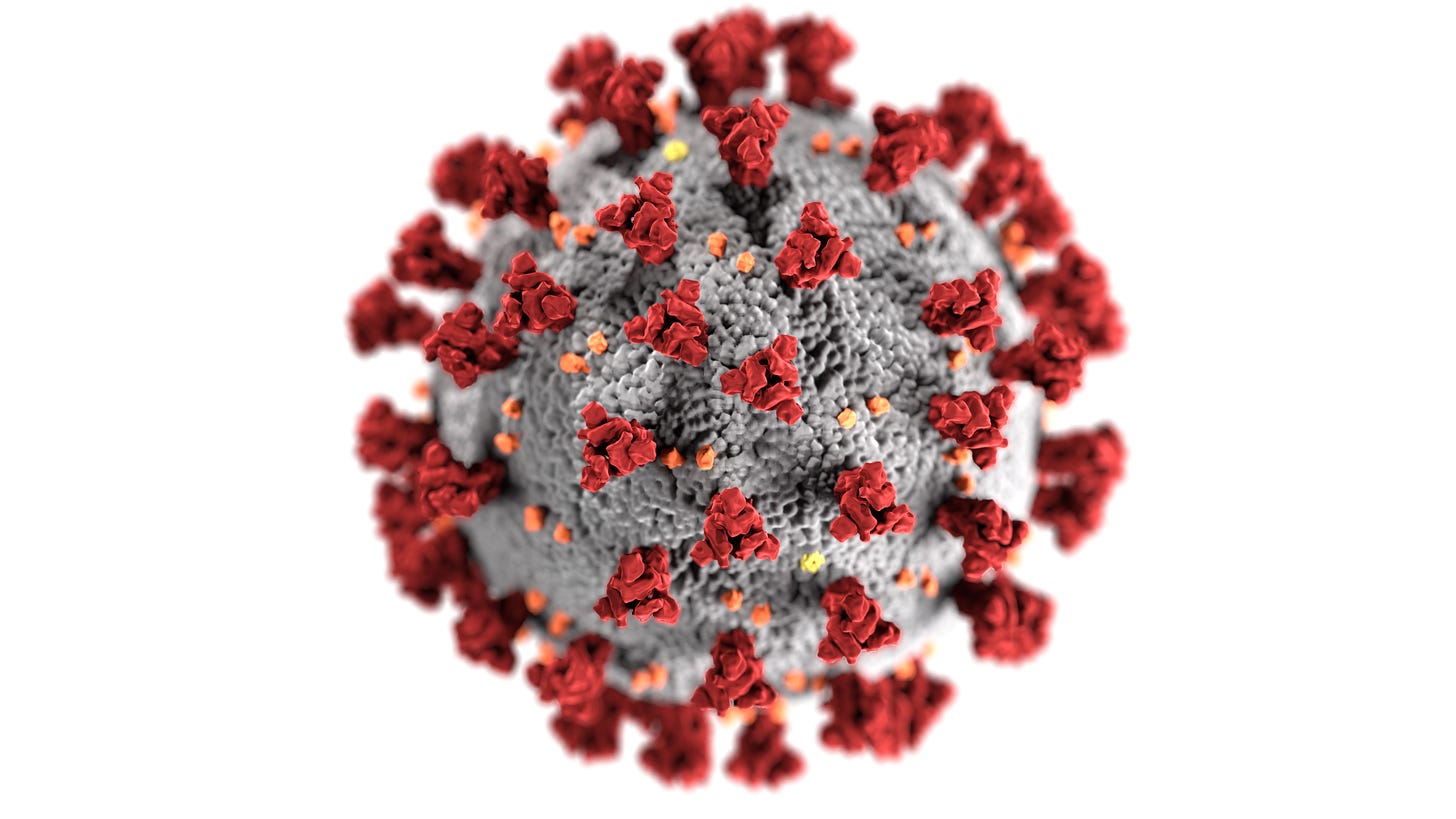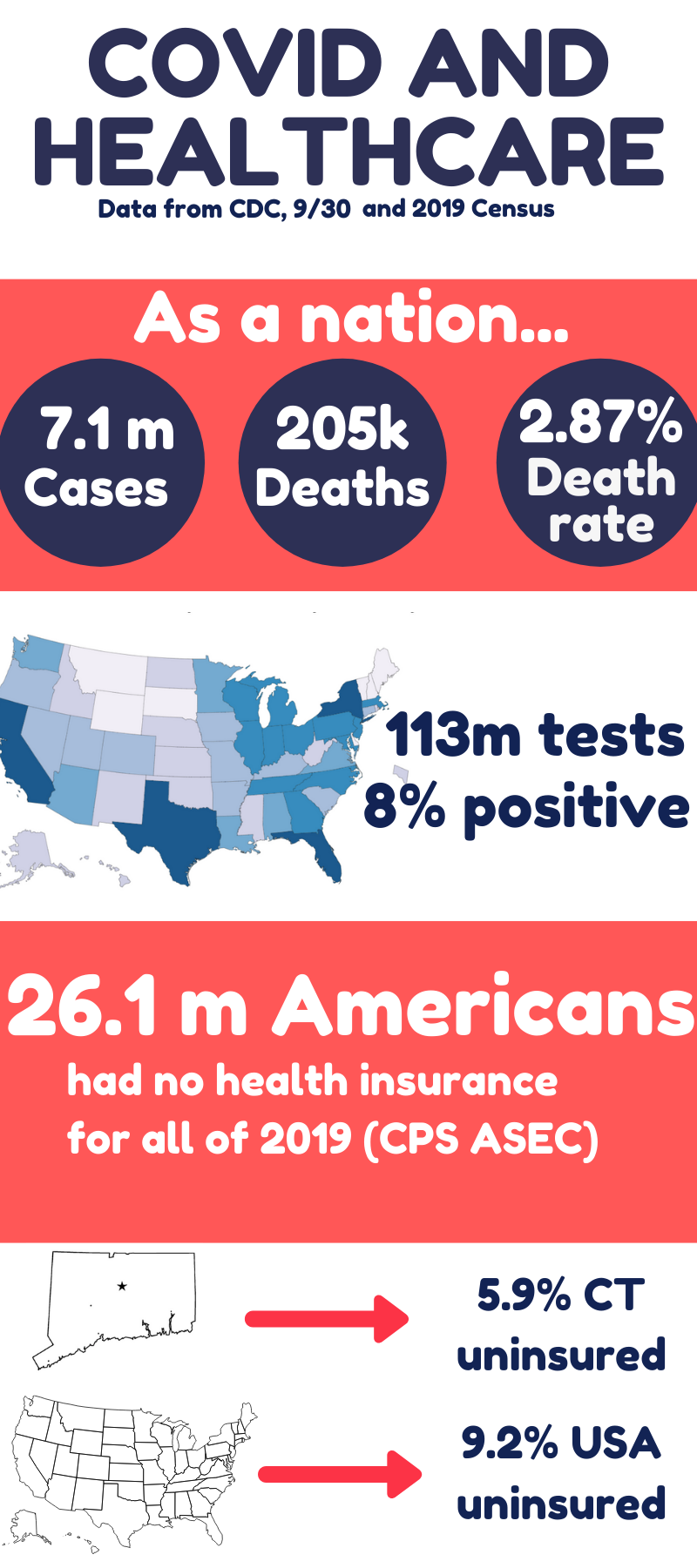Students at the University of Connecticut asked UConn professors who taught the summer COVID-19 course what they think about the pandemic’s impact on the upcoming election.
The COVID-19 pandemic that has put the world to a halt for the past seven months has now also reached the highest office in the country.

From left, Dr. Sherry Pagoto, Associate Prof. Steven Szczepanek and Dhvani Badwaik (Photos from uconn.edu)
President Donald Trump announced early Friday morning that he and his wife, Melania, have tested positive for COVID-19 and would begin quarantining. Vice President Mike Pence and his wife, Karen, tested negative, according to a Tweet from Pence’s press secretary.
At this time, nearly 34 million people have contracted the virus and over a million have died worldwide, according to the Johns Hopkins Coronavirus Resource Center. In the United States alone, more than 207,000 people have died due to the virus.
In order to better grasp the magnitude of the COVID-19 pandemic, we enlisted the help of professors who taught a free, one-credit class on the pandemic during UConn’s summer term. All of the following responses were obtained via email.
Q: How important of an issue is the COVID-19 pandemic in the upcoming election?
Dr. Sherry Pagoto, Professor of Allied Health Sciences at UConn: “The pandemic is of paramount importance in the next election. First of all, we need an aggressive plan for getting this pandemic under control — it will not go away on its own.
Second, we need a science-informed plan for preventing future pandemics. Another consideration is that the pandemic exploited huge problems in our healthcare system and public health infrastructure. These problems have to be solved because they are like the weak levees breached by Hurricane Katrina. For example, the lack of healthcare coverage and extraordinary healthcare costs have fanned the flames of the pandemic. The disconnectedness of our public health infrastructure has made it extremely difficult to identify and isolate cases to the extent that other nations have done.
Finally, the pandemic has exploited health inequities by wreaking havoc on BIPOC communities as well as people with chronic disease.
I recommend that young people study not just the plans to control the pandemic but also the specifics of each candidate’s healthcare plans with an eye toward three things: 1) reducing the number of people who do not have healthcare, 2) reducing healthcare costs, and 3) eliminating health inequities.”
Steven Szczepanek, Associate Professor of Pathobiology at UConn: “I think it is one of the most important topics of the election. Getting the response to the pandemic right is literally a matter of life and death for many people. There’s also the issue of personal freedom and potential infringement of the government on those freedoms. No matter where you stand in the political spectrum, COVID-19 is a key issue that voters need to care about.”
Dhvani Badwaik, management doctoral student and instructor in the School of Business at UConn: “COVID-19 is an all-encompassing issue in the upcoming election, with effects on economics, national security, healthcare, scientific research, the social safety net, and long-term questions about disaster preparedness.”
Q: Why should young voters care about the COVID-19 pandemic?
Pagoto: “Young adults have been severely impacted by COVID-19. They aren’t the highest risk group when it comes to death, but the degree of disruption to their lives at a very pivotal time in life is profound. Young people have also become COVID-19 scapegoats, where the public, media, and even some university administrators blaming and shaming young people for local outbreaks, especially in areas where local policy does not follow public health guidelines.
While young adults might feel like the end of the road for COVID-19 is with the vaccine, the reality isn’t quite that simple. The US needs a plan for distributing the vaccine widely and herd immunity by vaccine may be a long way away as long as we have high rates of vaccine refusal. The other monkey wrench is that the vaccine isn’t likely to be even close to 100% effective, so a solid plan for continued preventive measures will still need to be in place.
When it comes to the election, I recommend students examine the specifics of the plan to deal with COVID-19 and also the plan to prevent future pandemics. Sadly, epidemiologists have been warning us about pandemics for years and they are telling us this will not be the last one. We know better than to ignore their warnings. The next administration needs to show they take this very seriously and put forth a detailed plan so that we do not end up in this situation again. Pandemics are preventable. This one was and the next one will be even more so.”
Szczepanek: “Mortality from the virus is pretty low in young people, but young voters need to remember that they will not always be young. Setting a precedent to control the spread of the virus will be crucial for responses to future outbreaks, which will be of more relevance to these currently young voters. Their future selves will thank them for taking this pandemic seriously.”
Badwaik: “The COVID-19 pandemic has impacted the lives of young adults in profound ways, including educational experiences, career prospects, and the ability to socialize freely. Going forward, we have opportunities to mitigate negative effects through public health guidance and widespread cooperation. Without such coordinated scientific efforts, the effect of the pandemic on young people will last longer with greater severity.”
Q: How can young voters use their vote in November to help control the pandemic?
Pagoto: “Vote for candidates that are aligned with and informed by science, because legislators are not trained to prevent and cure diseases—but scientists are.”
Szczepanek: “Voting for a candidate is something that one should do based on all of the issues that we face, not just the pandemic. Controlling the pandemic is one (major) issue that should influence the decisions people make as to who to vote for. Having said that, the pandemic seems to influence most other major issues that we are currently facing, so that must also be considered.”
Badwaik: “The United States’ public health infrastructure is ultimately governed by elected officials. An election is our opportunity to hold officials at the federal, state, and local levels accountable for their job performance. Historically, young people vote at a lower rate than any other demographic, and voting represents the most fundamental form of civic engagement to help create a society that reflects your values.”
Connecticut residents are urged to continue taking precautions to prevent the spread of COVID-19. Learn more at ct.gov/coronavirus.
Graphic by Allison O’Donnell. Sources: CDC, Census.gov
Mike Mavredakis is a student at the University of Connecticut pursuing a degree in journalism with a minor in political science. Allison O’Donnell is a UConn senior majoring in journalism and political science.
This article first appeared in Crash Course: Election 2020, a weekly newsletter produced by UConn Journalism students under the guidance of Associate Professor Marie K. Shanahan.

